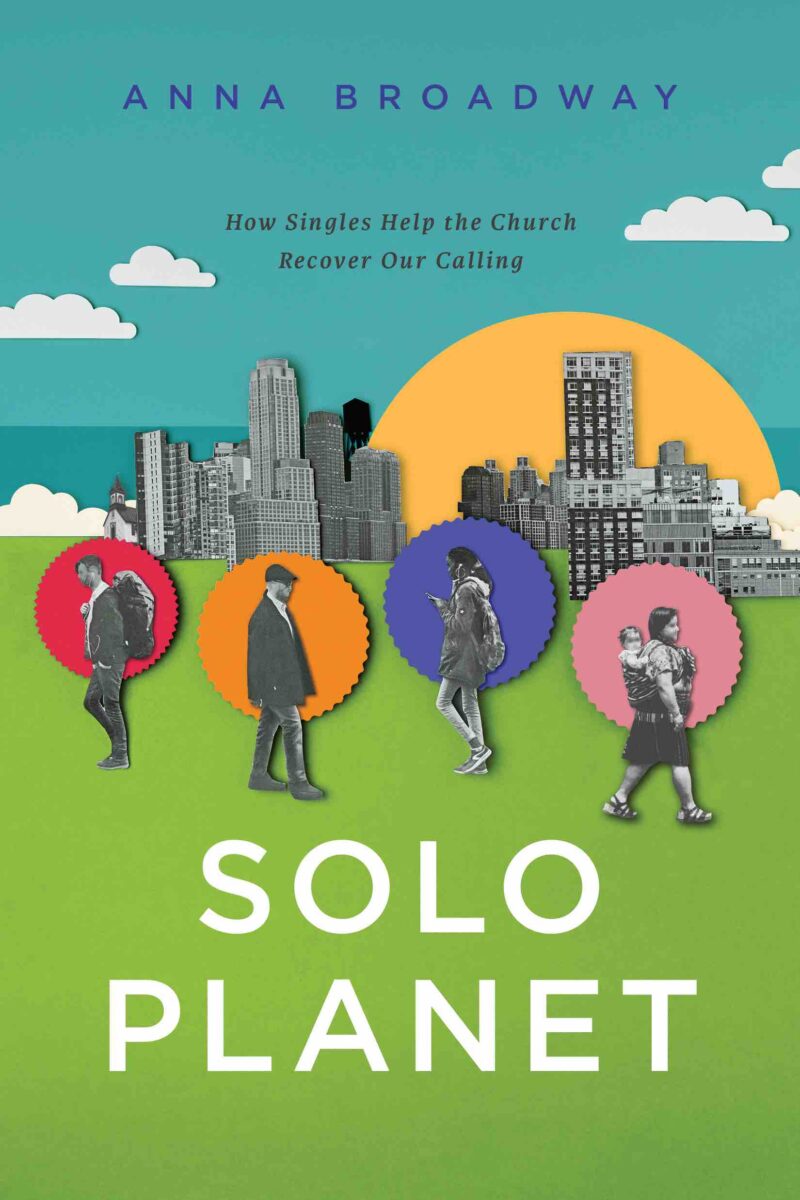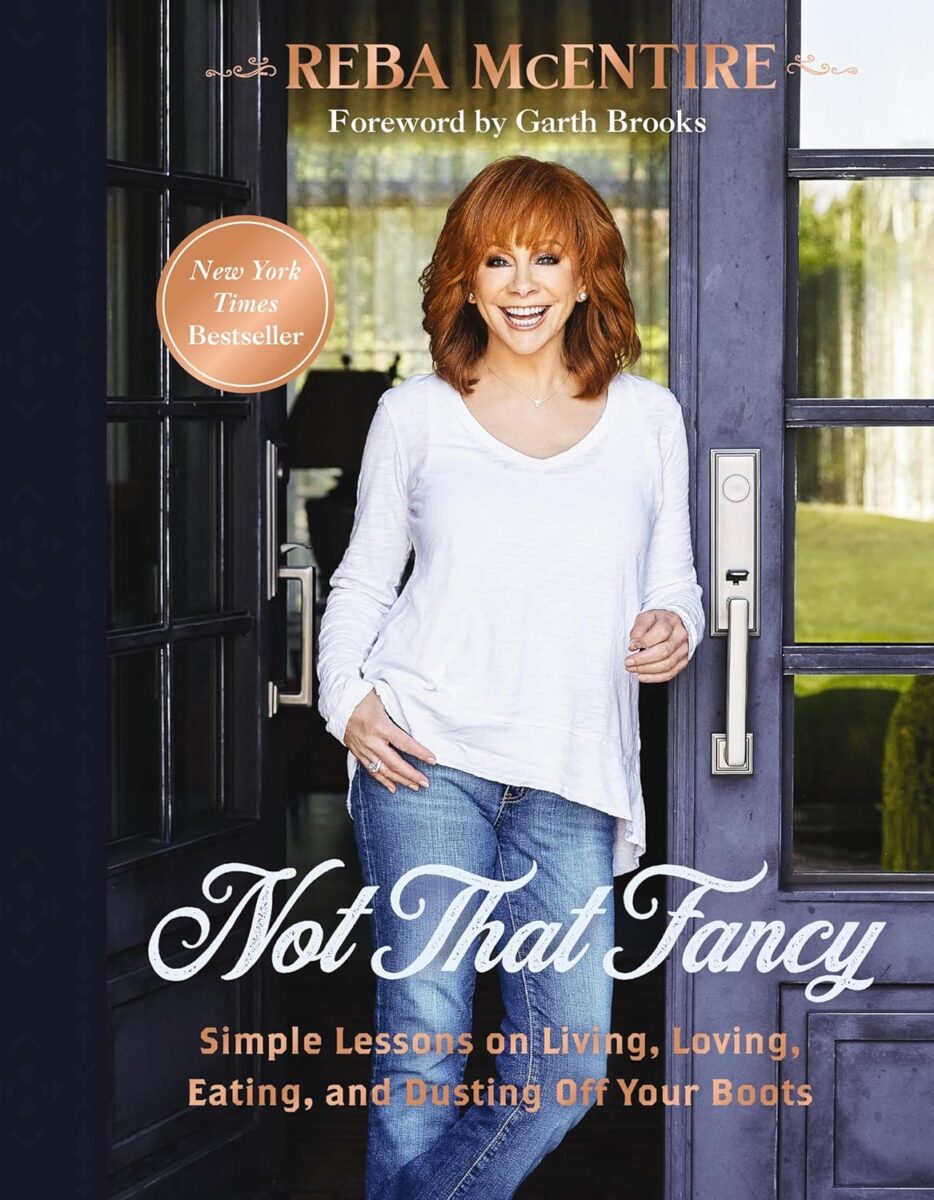Wherever Life Takes You, God Is There: Stephanie Quayle & Anna Broadway
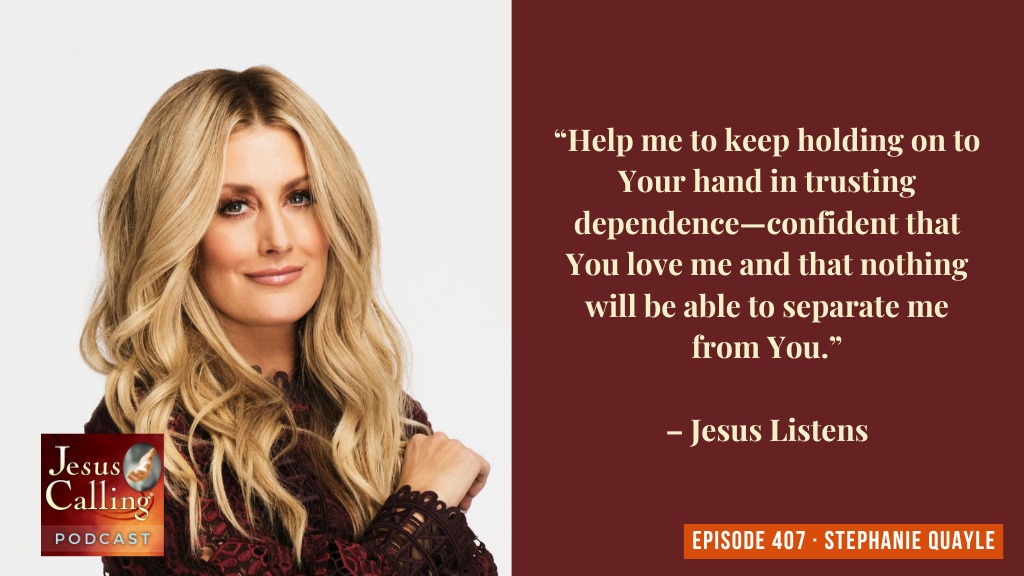
Stephanie Quayle: With all the choices I’ve made—the majority of them being very wrong—I still got to have the blessing of a really beautiful life, and now fully understand God’s unconditional love. It’s like anyone can say anything to me, and it’s kind of like, “Sorry, you don’t get a say.”
Wherever Life Takes You, God Is There: Stephanie Quayle & Anna Broadway – Episode #407
Narrator: Welcome to the Jesus Calling Podcast. Traveling far from home can reframe our perspectives on the world, ourselves, and our faith. But more than the places we go, the people we surround ourselves with, and the stories we share with one another, will profoundly shape our lives.
Country singer/songwriter and author Stephanie Quayle shares her journey from growing up in Montana to traveling to Switzerland and California before settling in Nashville. Tragic loss in a plane crash compelled her to confront grief and forgiveness, shaping both her life and her music and ultimately, strengthening her faith. We’ll also hear from Anna Broadway, an author who traveled the globe to gain new perspectives on singleness in the church, advocating for a more inclusive and understanding approach.
Let’s begin with Stephanie’s story.
Stephanie Quayle I’m Stephanie Quayle. I am a country singer/songwriter, now author. I’ve been in Nashville since 2011. I started my own record label, and I’ve been sharing my stories through my music.

My parents split when I was super young, but my mom married a veterinarian, which took us to living on a farm during the week. And then I was with my dad in a city in Montana, and a little town called Bozeman on the weekends. So I would spend my weeks with my mom on the farm doing chores, earning every horseback ride. And then on the weekends, I was with my dad. So I had a very eccentric childhood and so much freedom. I could jump on my horse and go ride into the sunset in my own imaginary world and it was amazing growing up in Montana. There was so much work ethic and drive mixed with total freedom.
Leaving Home and Finding Music
Freshman year of high school was really hard for me. I got bullied and hazed pretty bad by the senior girls. Pretty bad is a very PG version of what it was, and I just had to go. And my way of running away was doing an exchange program.
So I made my way to Fribourg, Switzerland, and my host brother took me to this little cafe, and there was a band seated maybe a table away. And me being a little songwriter in the making, a professional eavesdropper, I overheard this band talk about how they were looking for a new singer. And so in some broken French Stephanie kind of way, I made myself known to this little band, and they said, “Well, come audition.”
So I auditioned for the band and got the job, and when I got on stage, it all came into focus and made sense in a way that I’d never felt before. That kind of just, Okay, I’m in this space I’m supposed to be in. So we made an album, we toured around Switzerland on the weekends, and after school we would practice and write our little songs.
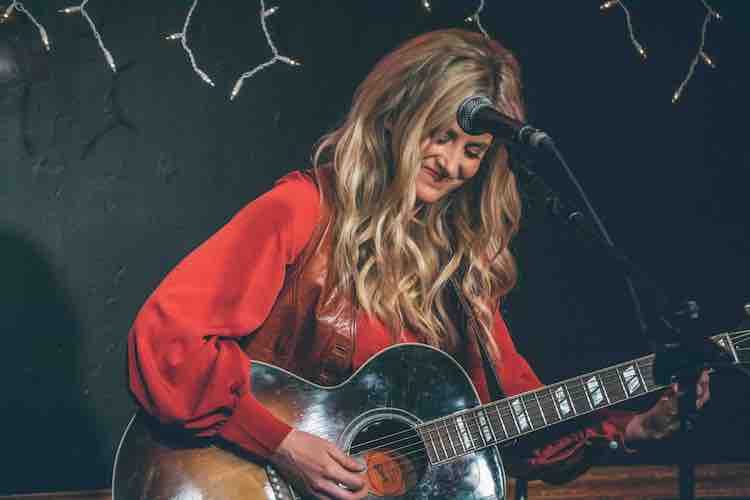
So I got back to Montana—and this now is my senior year of high school—and I’m on fire for music. It didn’t matter what the genre. Singing at church, singing in the choir, having a jazz trio, I had a R&B band. I just had that love of singing. And then after graduating high school, I made my way to California.
Tragedy Revealing Hidden Secrets
In my early twenties, I am working at this little clothing store in Santa Monica, California, and working that job to pay for my life and my music and trying to do all the things like most young twenties are doing. Right? And I met this man. He’s got a young daughter. It just started off as acquaintances that then turned to friendship, that then turned into a relationship.
I had a very strong intuition and gut [feeling that] something wasn’t right. I couldn’t pinpoint it. And every time I would question him, there was no discussion. It was dismissed. It was met with only my last name. “Quayle, you’re so insecure, Quayle, you’re so crazy.”
I think I was so good at seeing the potential of people that I believed in the potential to all ends of the earth. And I wanted to believe him. I was building my life with this man. I thought we were going to be together forever.
And so then cut to being in this little kitchen in our rental that we were sharing with his daughter. Eden [his daughter] was out in the bedroom watching TV with the dogs. And I’m preparing dinner, and I get the phone call that you never want to get: “There’s been an accident. You need to come quickly.” So all I could think about in that moment was, Get this little girl to her father.
He was piloting the plane. This was January 28th of 2009. I didn’t even know that he was going flying that day. He went flying all the time, and we’d just talked just a few hours prior. So I packed up Eden in the car and I don’t know how I drove the speed I did, how I got to the airport, I just had to get her to her dad. All I could think about was, Can I get her to her dad? If there’s still one moment, I want her to have that moment. And when we got to the airport [there were] fire engines and sirens and police cars and all those things. And we just started running to the edge where the hangars are, and then the edge of the runway. And that’s where the police stopped us. They didn’t want us to see what was left to see, for obvious reasons. And I can still hear her screams.
Grief is the strangest experience. Wednesday night I grieved, Thursday, Friday, Saturday as everyone came in for the memorial. And on Sunday, we had the memorial at the same airport. And that was the day that I learned that I wasn’t the only woman.
So grief turned to betrayal. I think if there was a race between grief and betrayal, I think betrayal will win every time, because it’s so insidious and it makes you question yourself. That’s immediately what happened. I just was in shock. How did I live with this and not know?
You know, of course I had so many questions of God, right? Why? Why would you let this happen to me? And in that moment, I was just done. It wasn’t that I wanted to die, I just didn’t want to hurt anymore.
“I had so many questions of God, right? Why? Why would you let this happen to me? And in that moment, I was just done.” – Stephanie Quayle
Unearthing Hidden Wounds
Looking back, it’s hard to look at [a toxic relationship] from the lens of that young person. But that young person was so determined to make it work and so sure that, If I just keep working on me, I will be good enough and worthy enough to be this person’s person, when there was no chance.
And so when I met David, my husband, I’m like, Oh, all that’s gone now. I’m good! I find myself a Christian cowboy. He’s my Southerner. He loves Montana, loves the Lord, all those things. And I’m good, right? But I wasn’t good. And so that avoidance only got me so far.
And so I’m putting out music, everything looks bright and shiny. Everything’s fine. The past is in the past. And then in April of 2021, I’m releasing a new album, and I get a call from the little girl that once was a twelve year old watching a plane crash. She’s now a full adult and navigating her own healing. And when she reached out to say she was no longer going to keep his secrets, it just blew my mind at the maturity and the self-awareness to not allow something to hold on to your soul, to really be free from that.
And what happened through that was I started journaling and I started getting quiet, and I started meditating and praying, which led to, I’m going to have to dust off my Bible. And just before that, I had been at a prayer breakfast where pastor Chris Hodges was a speaker, and he had the most simple message: “Is Jesus the center of your life?” And that just knocked me off my chair. And so I started just kind of haphazardly praying and then I’d open the Bible at random. And it was such a cool treasure hunt. And I would call my dad and be like, “What does this mean?” And then he goes, “What do you think it means?” So then we got into these conversations and my heart just kept getting pulled.
I realized I hadn’t forgiven the guy that died in the plane crash. And I’m like, Okay, I’m going to do this. And I forgave him, and I got free. I have new freedom. This is even better than I imagined.
And cut to this last summer, I got angry. And I couldn’t put my finger on it. I’m doing all the things, I’m convicted in my faith, I’m unapologetic about my love of the Lord. What am I missing?
Last fall, I was watching my church in Birmingham, Alabama, online. And they said, “If you haven’t been water baptized, that’s something you need to do because that’s when you proclaim it to the world, ‘This is my faith. This is what I believe.’” I am driving to Birmingham just like driving in faith, because I really don’t know what this is going to look like. But what I’ll say is I went into the water one way and I came out different. It was immediate. I’d already been forgiven by God, I didn’t get that forgiveness of myself until that moment.
“I went into the water one way and I came out different. It was immediate. I’d already been forgiven by God, I didn’t get that forgiveness of myself until that moment.” – Stephanie Quayle
Creating Music With an Impact

So songwriting started for me with poetry when I was super little. I had a lot of feelings as a small child, and then those lend themselves to picking up my little guitar and just putting melodies to these dramatic little poems, and eventually those turned into songs.
I think that’s what I love about country music is its storytelling and it’s a very simple version when it comes to complex conversations. I think that sometimes in the way I structure my songs, I can take something that’s very heavy and give it a little bit more softness around the edges.
“What I love about country music is its storytelling and it’s a very simple version when it comes to complex conversations. I think that sometimes in the way I structure my songs, I can take something that’s very heavy and give it a little bit more softness around the edges.” – Stephanie Quayle
So when Eden reached out to me and she shared that she was painting her way through her healing and her pain and her relationship with her dad and his relationship with these women—including me,—it just made me wonder what would happen if I finally took to my music and shared these stories. What would that feel like to me? And so I started just collecting thoughts and I wanted someone to hold me accountable so that I would see myself through. And so I reached out to one of my most trusted songwriting friends and said, “Will you meet me in Montana and just go to all the places with me?” And as we began to write, it was so clear that it was supposed to happen. And there were Godwinks all over the place, which I didn’t really even fully grasp at the time.
And what shocked me the day that the album came out was how many women had been through something similar. You know, I think sometimes we feel like islands, like we’re the only ones. And that was really revealing. And I’ve always kind of looked at my music as like, Is it creating a positive impact? Forgiveness, that is such a powerful word. Because you only get forgiveness through faith.
“Forgiveness, that is such a powerful word. Because you only get forgiveness through faith.” – Stephanie Quayle
Jesus Listens, July 28th:
Compassionate Jesus,
I come to You, feeling weak and weary, seeking to rest in Your refreshing Presence. I know that You are always by my side, but sometimes I’m forgetful of Your nearness. I confess that I’m easily distracted by the expectations of other people. If their demands on me are too numerous and weighty, eventually I feel as if I’m carrying a crushing load.
Today I find myself sinking under heavy burdens, so I’m coming to You for help. I ask You to lift the weights from my shoulders and carry them for me. As I talk with You about the matters that concern me, please shine the Light of Your Presence on each one—showing me the way forward. May this same Light that illuminates my path soak into the depths of my being, soothing and strengthening me.
Lord, I open my heart to Your healing, holy Presence. I lift up my hands in joyful adoration, eager for Your abundance to flow freely into me.
I desire You above all else, for My soul finds rest in You alone. I’m grateful that You give strength to Your people and bless Your people with Peace.
In Your peaceful, holy Name,
Amen
Narrator: To learn more about Stephanie Quayle, check out her latest album, On the Edge, and debut book, Why Do We Stay?, wherever you buy books.
Stay tuned to Anna Broadway’s story after a brief message.
The Joy of Motherhood
Motherhood—it’s a journey like no other, teeming with love, unparalleled dedication, and moments that pierce the very essence of your soul. It’s a trek that demands to be celebrated, lauded, and embraced in its entirety. Celebrate the moms in your life this Mother’s Day with two beautiful gift books, Jesus Calling for Moms by Sarah Young and Grace for the Moment for Moms by Max Lucado. These heartfelt devotionals will remind the moms in your life just how special they are. Jesus Calling for Moms and Grace for the Moment for Moms are available now where books are sold.
Set Your Graduates Up For Success
During times of transition and unknown next steps, it is more important than ever to cling to the promises of God and to tune your ear to hear what Jesus has to say. Jesus Calling for Graduates is an encouraging compilation of 150 devotions from Sarah Young’s brand. Grads will find topics such as discerning God’s will, self-worth, trust, support, and much more. Jesus Calling for Graduates is perfect for both high school and college graduates as they embark on the next chapter. Look for a special custom edition of Jesus Calling for Graduates available exclusively at www.faithgateway.com.
Our next guest is author Anna Broadway, who went on a global research trip for her latest book, Solo Planet. Anna’s outlook around singleness began to shift as she talked to people from all walks of life, and she learned that when we look at our lives through the lens of our relationships with God—versus who we are in a human relationship—it changes how we think and how we connect.
Anna Broadway: I’m Anna Broadway. I’m a writer now living in Alaska.
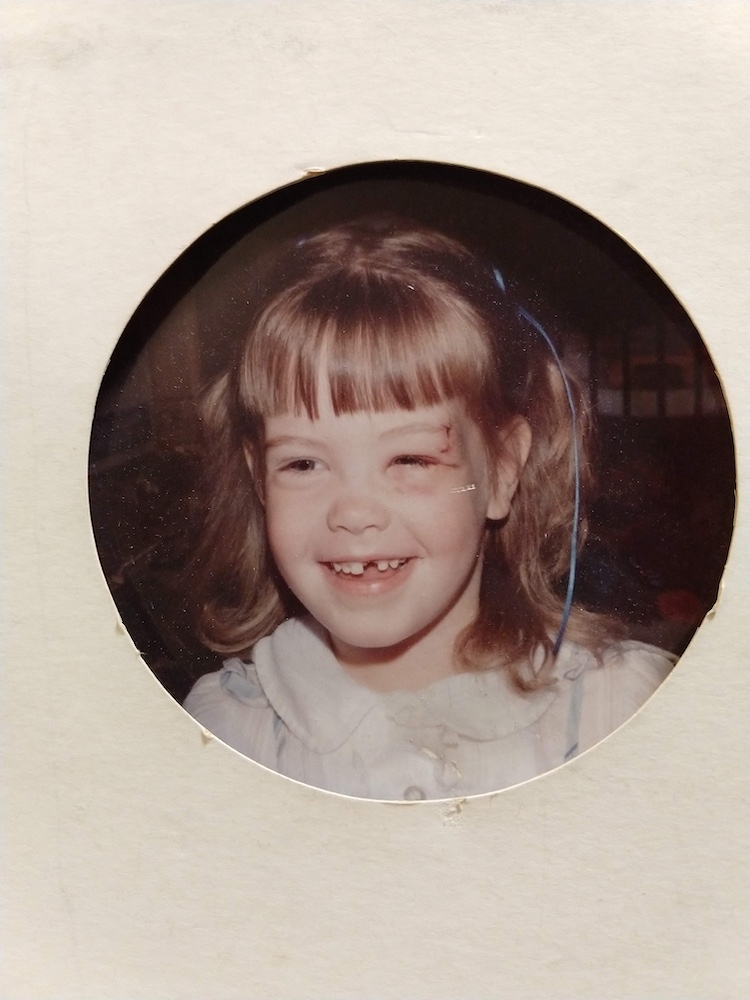
As a child, I would put myself to sleep every night by making up stories about how I was going to meet my future husband. A lot of people got married very young, motherhood was what a girl did as she became an adult. In those early years, I didn’t really envision much for myself beyond the marriage that I thought would probably happen at the end of college, and then the motherhood that I assumed would follow that.
Of course, there’s a reckoning when you reach adulthood and things do not go as you have thought they would go. My thinking about singleness has certainly changed quite a lot over the past twenty years, even though this is different from the life I once imagined for myself.
Researching Global Singleness
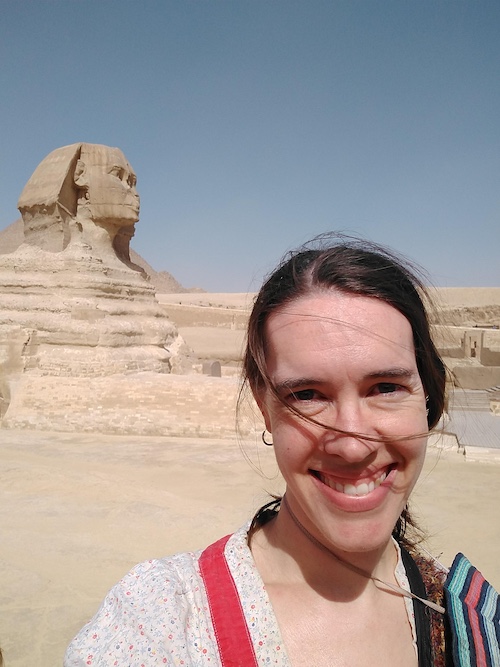
The book Solo Planet: How Singles Help the Church Recover Our Calling draws on my research about singleness in the global church. It’s based on about seventeen months of fieldwork interviews with nearly 350 people, most of it outside the United States, from 2018 to 2019. And during that time I interviewed Christians from nearly fifty countries. I visited forty-one countries, including the United States, and talked to Christians from all over the world and all the three major traditions: Protestant, Catholic, and Orthodox.
I had some grounding in the study of religion as a concept and a social phenomenon. I had also had very limited exposure to anthropology, but certainly not to any of its methodology. So I really drew much more on my training in journalism, even though I don’t have a formal degree in it.
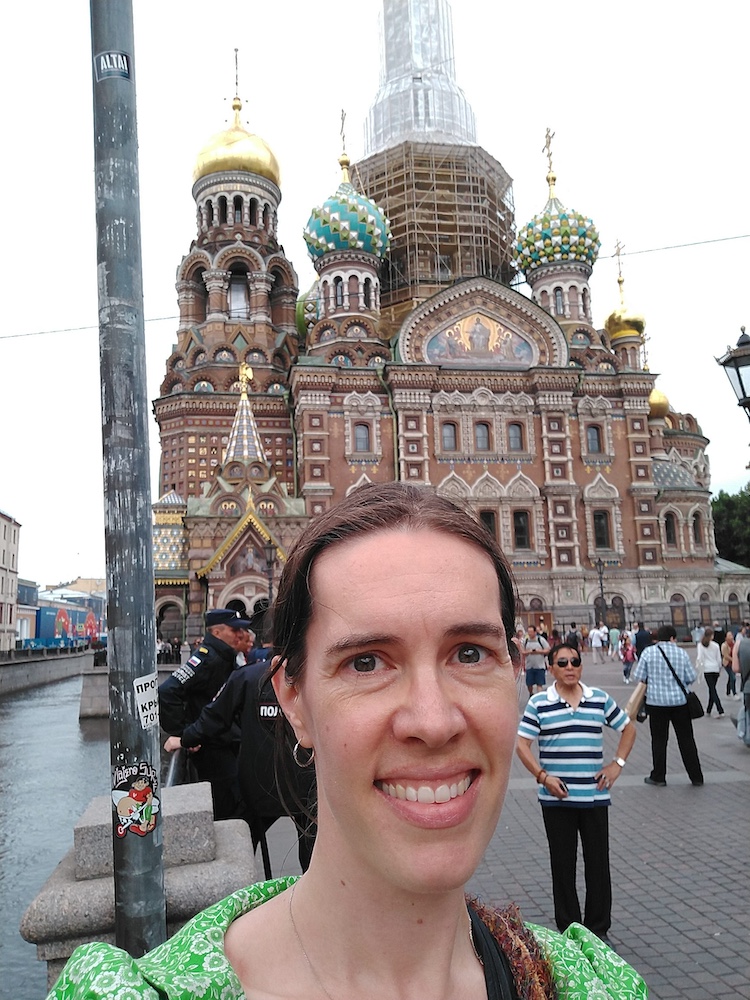
I discovered that no church was really that good at integrating the singles and the married people. Now, there were lots of cultural variables at play. For example, in some cultures that I went to, singles were really viewed as second class citizens. They had lower status. They were kind of looked down upon and sort of blamed for it, as if this was their fault and they had done something wrong. In other cultures, there maybe wasn’t such a strong stigma about singleness exactly, or maybe not until you reached a certain age.
Well, of course, it’s much easier to see these prejudices and failings and sins when you’re outside of the culture. It’s much harder to see the problems in your own culture. But what that really showed me was I think it’s really a global problem for the church to integrate singles and married people well. We need each other to be different, but we have to figure out how to love and support each other in our differences.
“We need each other to be different, but we have to figure out how to love and support each other in our differences.” – Anna Broadway
Single People in the Bible
I’ve learned so much about the ways that God provides for our needs for community, single or married, and how single and married people really need each other.
One of the things that was so interesting to me was I would talk to singles who would tell me about how they weren’t very supported in their culture. They weren’t necessarily very supported or understood in their church. But a surprising number of those people were aware there were single people in the Bible. In fact, the single people in the Bible actually do some pretty significant stuff. I think it really underscored the importance of not just relying on other people’s teaching and interpretation, but really studying the Bible for yourself. Because when you do study the Bible for yourself, I think that’s the first and most important place to see, Wow, singleness is not necessarily what I make of it.
“When you do study the Bible for yourself, I think that’s the first and most important place to see, Wow, singleness is not necessarily what I make of it.” – Anna Broadway
That also, I think, got me thinking like, Well, why didn’t I recognize these people in the Bible? I think it’s because the scripture’s authors tell those stories very differently. We tend to tell people’s stories based on their relational status, and I think this is true in a lot of cultures, not just the United States. We tend to define the narrative arc of a person’s life and frankly, of adulthood, as you move into adulthood, you maybe get your education, you get married, you have children, you raise those children, you retire if you have time, and enjoy a little bit of life before your body and mind gives out. Like that’s kind of the typical narrative arc and often how we tend to define adulthood and maturity. That’s not how the Bible tells people’s stories. And even when people do maybe hit a lot of those markers, that’s not always presented as a success.
If you look at Genesis, Isaac doesn’t necessarily end on a very good note, even though he’s finally had children. Like he kind of comes across as a weak man who’s drifted away from his wife, it’s not clear that he’s very close to God.
The Bible tells stories in terms of how people relate to God. The Bible tells stories of people’s lives primarily in terms of their relationship with God, and that changes everything. When we reshape our narrative for life from one that’s about finding a relationship or not, and having children or not, to one that’s about following Jesus and seeking first God’s kingdom, it really changes how we think about singleness, even in our own lives or other people’s lives.
“When we reshape our narrative for life from one that’s about finding a relationship or not, and having children or not, to one that’s about following Jesus and seeking first God’s kingdom, it really changes how we think about singleness, even in our own lives or other people’s lives.” – Anna Broadway
So actually, I think if we let singleness take us where I think God may want it to, it could radically shape how we think about Christian ministry and the church’s call to be in the world and our communities.
Focusing on What We Do Have, Versus What We Don’t

When we are focused on what we don’t have, we often can’t change that. You know, if our bodies have failed us, we can’t heal our bodies and restore functionality that’s lost. We can’t just force somebody to appear in our life or return the love or attraction that we feel for them. There’s all kinds of things we can’t change, but if we’re focused on what we don’t have and what we can’t change, that leads to a feeling of powerlessness and this idea that there’s nothing I can do. But I think both gratitude and in the case of conflict, repentance, focus us back on, Where do I have agency, what can I do?
I don’t know how many times that I’ve been in a place of deep discouragement, and when I start thinking about, What do I have when I turn my eyes back to God in some way?—all of a sudden, I find more motivation to move forward in the present and do what God is calling me and inviting me to do right now.
If you are a person hearing this who hasn’t been to church in a while, who’s feeling really cynical because of the way that you’ve been burned, who’s feeling really disillusioned about Christian community, please hear this and let God challenge you in whatever way He might want to. God can show up where you think it’s almost impossible. There is no limit to how and where God can meet us. And I have seen over and over in my life when I trust Him, when I obey Him in the things that are hard to do, God is faithful and He meets me.
“God can show up where you think it’s almost impossible. There is no limit to how and where God can meet us.” – Anna Broadway
I really love talking about the role that prayer played in my research and my life, because it has just become such a vital discipline for me. I am finding a lot of richness when I take a particular passage of scripture, read a verse, and then pray in response to it. And I’ve tried to do that often related to a situation that I’m dealing with or something that seems really hard, but it is really amazing and exciting to me the way God and the Holy Spirit seem to open up a passage of scripture when I pray that way. Something about the slowness of just going one verse at a time… there can be shortcomings to that approach, but taking the time to stop and really think about what a verse says and to pray about it, has just really opened passages up.
I’m going to read the January 19th portion of Jesus Listens:
Peaceful Savior,
May Your Peace protect my mind and heart. Help me to rejoice in You always, remembering that You are near. As I spend time with You, presenting my requests to You with thanksgiving, You bless me with Peace that transcends all understanding. This is how You guard my heart and my mind. It’s a collaborative, You-and-I together effort.
I’m grateful that I never face anything alone!
Even when I’m feeling alone, I can talk freely with You, trusting that You are with me always. I’ve discovered that the longer I talk with You, the more aware of Your nearness I become. And this awareness of Your Presence with me fills my heart and mind with Your Peace.
In Your beloved Name, Jesus,
Amen
Narrator: To learn more about Anna Broadway, please visit www.annabroadway.com, and be sure to check out her book, Solo Planet, at your favorite retailer.
If you’d like to hear more stories about God being with us wherever we go, check out our interview with Glo Atanmo.
Now, please enjoy this sneak peek at Reba McEntire’s audiobook, Not That Fancy.
SNEAK PEEK: NOT THAT FANCY
Reba McEntire: Shelby takes after all of us in his love of taking risks too, even if it looks a little different. Racing cars has a lot in common with being a rodeo cowboy. The rush of competition. The danger of the sport. The chance to prove yourself. The speed. Being a former barrel racer, I can see why he likes it so much. As a parent, I’ve learned I have to let him take those risks. It’s hard being a mom and having to take your hands off the wheel and let go of control over your kids’ lives, but we have no other choice. The best thing you can do is to turn it over to God and say, “You gave him to me, and now I’m giving him back to You.” Doing that sure has saved me a lot of anxiety. Because God loves him more than I do—and I love him an awful lot—so I know he’s in good hands. It’s that trust in God that helps us step out in faith and take chances on the riskier things in life.
Narrator: You can find the Not That Fancy audiobook on Audible or Spotify, and be sure to look for the print book at your favorite retailer.
Next week: Willie Robertson
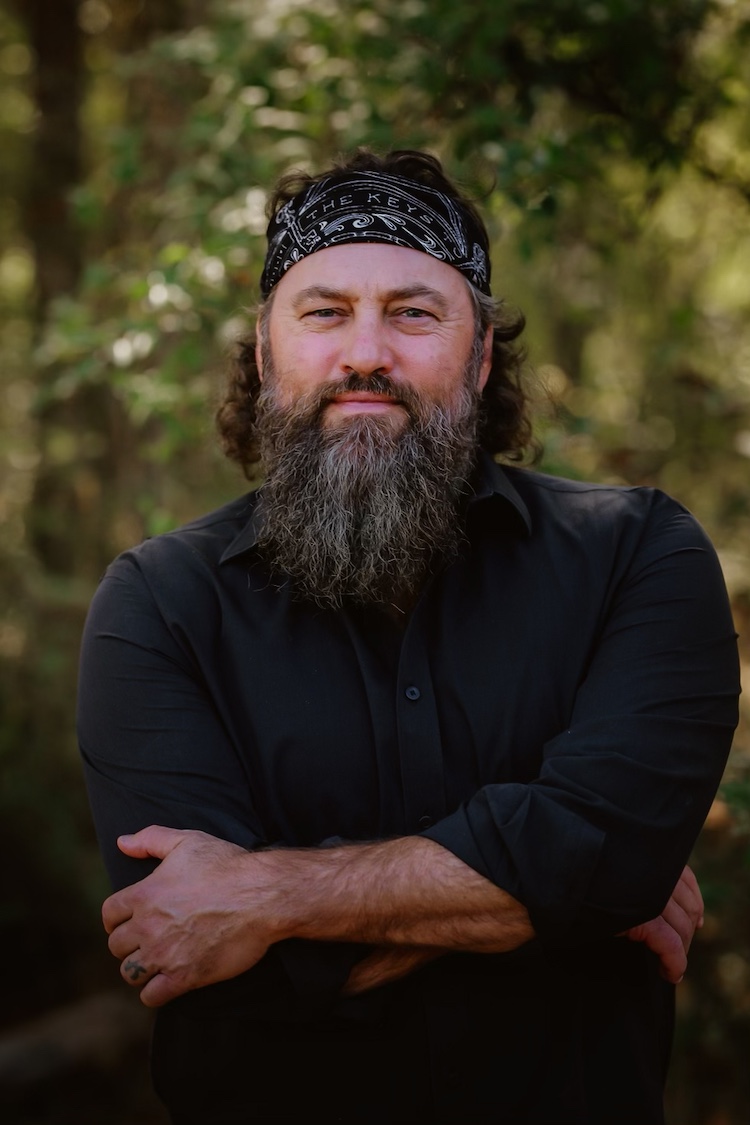
Next time on the Jesus Calling Podcast, we’ll hear from Duck Dynasty’s Willie Robertson, who shares the powerful family story that’s led him to become someone who shares the Word with others consistently.
Willie Robertson: Anything in life, you know, the more you do it, the more you know it, you start getting better and better at it. And the more confident you get, then it just becomes very natural in your conversations. When you share your faith, it starts fixing a lot of the other problems that you may have in life anyway.

